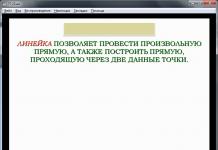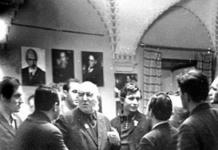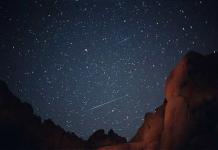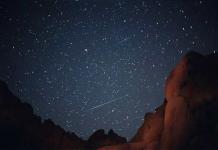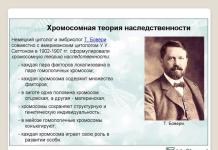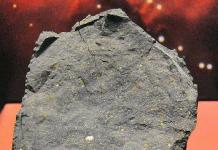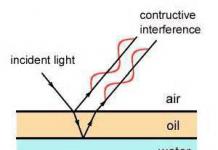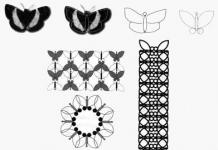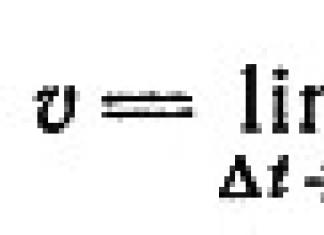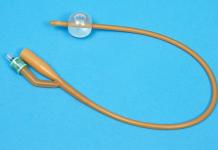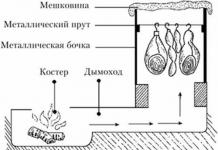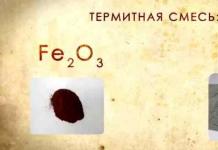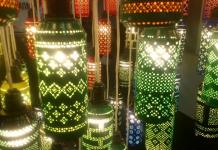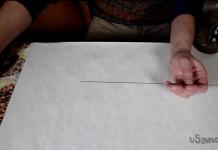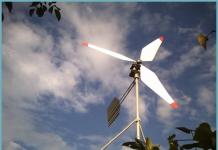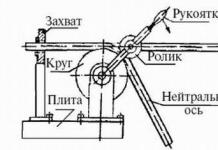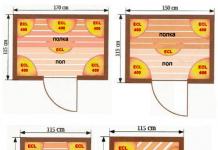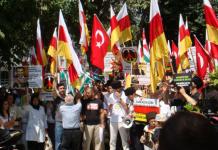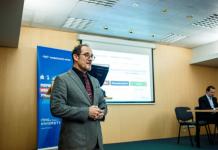He was a photojournalist for an army newspaper, ended the war with the rank of captain of the third rank and then worked in the photographic department of the Naval Museum, his mother Maria Volpert worked as an accountant.
In 1955, after finishing seven classes and starting the eighth, Iosif Brodsky dropped out of school and entered the Arsenal plant as an apprentice milling machine operator.
This decision was due both to problems at school and to Brodsky's desire to financially support his family. Unsuccessfully tried to enter the school of submariners. At the age of 16, he decided to become a doctor, worked for a month as an assistant dissector in the mortuary at the regional hospital, dissected corpses, but eventually abandoned his medical career.
After that, in geological parties. From 1956 to 1963, he changed 13 jobs, where he was listed for a total of two years and eight months.
Since 1957, Brodsky began to write poetry, performed with their reading in public. Since the 1960s, he began to engage in translations.
The poet's talent was appreciated by the famous Russian poetess Anna Akhmatova. Brodsky, rejected by official circles, gained fame in literary circles, among the intellectual underground, but he never belonged to any group, was not associated with dissidence.
Until 1972, only 11 of his poems were published in the USSR in the third issue of the Moscow samizdat hectographed journal "Syntax" and local Leningrad newspapers, as well as translation works under his own surname or under a pseudonym.
On February 12, 1964, the poet was arrested in Leningrad on charges of parasitism. On March 13, a trial took place over Brodsky. Anna Akhmatova, writer Samuil Marshak, composer Dmitry Shostakovich, and French philosopher Jean Paul Sartre stood up for the poet. Brodsky was sentenced to a five-year exile in the Arkhangelsk region "with mandatory involvement in physical labor."
Returning from exile, he lived in Leningrad. The poet continued to work, but still his poems could not appear in official publications. Means for life were given by transfers, supported by friends and acquaintances. Mostly from the works of this time, Brodsky himself compiled a unique book of lyrics addressed to one addressee "New Stanzas in August. Poems to M. B.".
In May 1972, the poet was summoned to the OVIR with an ultimatum proposal to emigrate to Israel, and Brodsky decided to go abroad. In June he left for Vienna, in July for the USA.
His first position was teaching at the University of Michigan. He then moved to New York and taught at Columbia University, New York and New England colleges.
The poet published his works - the cycle "Songs of a Happy Winter", the collections "Stop in the Desert" (1967), "The End of a Beautiful Era" and "Part of Speech" (both - 1972), "Urania" (1987), the poem "Guest", "Petersburg Romance", "Procession", "Zofia", "Hills", "Isaac and Abraham", "Gorchakov and Gorbunov", etc. He created essays, stories, plays, translations.
He is in exile. Brodsky published five books of poetry in English during his lifetime. The first, Elegy to John Donne, published in 1967 in England, was composed of poems before 1964 without the knowledge or participation of the poet. His first English book was Selected Poems ("Selected Poems", 1973), translated by George Kline, which reproduced two-thirds of the contents of "Desert Stop".
Later, A Part of Speech ("Part of speech", 1980), To Urania ("To Urania", 1988), So Forth ("So on", 1996) were published. The first collection of his prose in English was Less Than One: Selected Essays (1986), recognized as the best literary-critical book of the year in the United States. In 1995, a book of essays, On Grief and Reason, was published.
Brodsky published in The New Yorker, New York Review of Books, participated in conferences, symposiums, traveled a lot around the world, which was reflected in his work - in the works "Rotterdam Diary", "Lithuanian Nocturne", "Laguna" (1973) , "Twenty Sonnets to Mary Stuart", "Thames in Chelsea" (1974), "Cod Cape Lullaby", "Mexican Divertissement" (1975), "December in Florence" (1976), "Fifth Anniversary", "San Pietro "," In England "(1977).
In 1978, Brodsky became an honorary member of the American Academy of Arts, from which he left in protest against the election of Yevgeny Yevtushenko as an honorary member of the academy.
In December 1987, Joseph Brodsky was awarded the Nobel Prize in Literature "for his comprehensive work, imbued with clarity of thought and the passion of poetry."
In 1991-1992, Brodsky received the title of poet laureate of the US Library of Congress.
Since the late 1980s, Brodsky's work has gradually returned to his homeland, but he himself invariably rejected offers to even come to Russia for a while. At the same time, in exile, he actively supported and promoted Russian culture.
In 1995, Brodsky was awarded the title of honorary citizen of St. Petersburg.
Marked by the rise in the intensity of the poet's work - he wrote and translated more than a hundred poems, a play, about ten large essays.
Collections of Brodsky's works began to be printed in Russia, the first of them - "Edification", "Autumn Cry of a Hawk" and "Poems" were published in 1990.
The state of health of the poet was constantly deteriorating. Back in 1976, he suffered a massive heart attack. In December 1978, Brodsky underwent the first heart operation, in December 1985 - the second, which was preceded by two more heart attacks. Doctors talked about a third operation, and later on a heart transplant, frankly warning that in these cases the risk of death is high.
On the night of January 28, 1996, Joseph Brodsky died of a heart attack in New York. On February 1, he was temporarily buried in a marble wall at Trinity Church Cemetery on 153rd Street in Manhattan. A few months later, according to the last will of the poet, his ashes were buried in the cemetery of the island of San Michele in Venice.
Brodsky's last collection Landscape with a Flood was published in 1996 after his death.
The poet was married to Maria Sozzani, an Italian aristocrat (maternally of Russian origin). In 1993, a daughter Anna was born in the family.
In St. Petersburg, he left his son Andrei Basmanov (born in 1967).
Brodsky's widow, Maria, chairs the Joseph Brodsky Memorial Scholarship Fund, established in 1996 to provide opportunities for writers, composers, architects and artists from Russia to train and work in Rome.
In the village of Norinskaya in the Konosha district of the Arkhangelsk region, where the poet was exiled, the world's first museum of Joseph Brodsky was opened.
On the occasion of the 75th anniversary of the poet's birth in May 2015, the Joseph Brodsky Memorial Apartment Museum will open in St. Petersburg - a branch of the Anna Akhmatova State Literary Memorial Museum in the Fountain House.
Parents
In the Soviet social structure, the Brodsky family was average, belonged to the category of "employees". Alexander Ivanovich Brodsky (1903–1984) worked as a photojournalist, Maria Moiseevna Volpert (1905–1983) worked as an accountant. Joseph was their late and only child. Apparently, it was not easy for the mother, and therefore she gave birth not in an ordinary maternity hospital, but in a specialized clinic.
Material conditions were "like everyone else." They lived closely, the three of us in a sixteen-meter room, then in another communal apartment a little more spacious - parents in a larger passage room, a son in front of a small room, and behind, behind a closet, his father developed and printed his photographs. The rooms were crowded with old furniture of various styles. They also wore old clothes, they were constantly repaired and altered. The family did not have to starve, but there was always not enough money, the parents' earnings were small (“... at home, as far as I can remember, monetary strife did not stop”). The first years of Joseph's life fall on a time of hardship - the war and the meager post-war years until 1948. He was too small to remember the horrors of the Leningrad blockade, but, like most of his peers, in childhood he knew only a poor life, barely above the level of hunger.
Brodsky's parents did not belong to the intelligent elite of the city, the circle of scientists and writers, but they were not alien to cultural interests: they constantly read books, listened to classical music, occasionally went to the theater. Both received a good education as children. Their speech was literate, free from dialect impurities, the vocabulary was rich. Alexander Ivanovich, the son of the owner of a small printing house in St. Petersburg, graduated from the Faculty of Geography of the Leningrad University. Maria Moiseevna was born in Dvinsk (Daugavpils in modern Latvia) in the family of a Baltic agent of the American sewing machine company Singer. She spent most of her childhood in Lithuania, near Siauliai. The Baltic middle-bourgeois families were characterized by bilingualism, Maria Moiseevna spoke German from childhood. Joseph's languages, however, were not taught at home. As he guessed later, the parents tried, if possible, to hide their "bourgeois origin", one of the signs of which was knowledge of foreign languages. Although Joseph's parents themselves did not suffer from the Stalinist terror, they were careful in their statements. Under normal conditions, family tradition enters the child's consciousness early and to a large extent determines self-determination, but Brodsky got it fragmentarily. Later, he could only fantasize about his ancestors in Lithuania and Galicia, where his roots went, judging by the surname, which comes from the city of Brody. In the sixteen-meter family space, Brodsky remembered the signs of social mimicry: a black plaster bust of Lenin on the stove, which in less dangerous times gave way to a marble bust of “some woman in a cap with frills, which are often found in commission shops”, and a photograph of Stalin above his bed, obviously , designed to hint to a random visitor in whose honor the boy was named.
... On June 22, 1941, an special issue of Leningradskaya Pravda came out in the afternoon. Of course, it differed from the usual, peaceful morning issue, not only in content. It was distinguished by the fact that journalists realized the depth of the danger that came to our land, and tried to convey this anxiety to readers. A military department was created in the editorial office of Leningradskaya Pravda, bringing together qualified, mobile journalists.
On June 22, 1941, in the House of Photographers, at Liteiny 61, almost all photojournalists of the city gathered for a rally, adopting a resolution: "consider all Leningrad photojournalists mobilized."
Alexander Ivanovich Brodsky also became mobilized from the first days of the war.
As a photojournalist for Izvestia, LenTASS, he went through three wars with his “watering can” (as German-made film and photo cameras, Leitz firms) were called in everyday life: Finnish, German, Japanese.
Alexander Ivanovich Brodsky, as a photographer and journalist, brought surprisingly vivid pictures of naval life to the editorial offices of the Leningrad newspapers Sovetskaya Baltika, Sailor of the Baltic, and North-Western Water Worker. He painted with the light of his old "watering can" black and white compositions of sea and river life, ships and strong people with an iron character and an elusive chuckle in kind eyes. It could be seen on the embankments, at the bridges where ships moored, arriving from the Baltic and Ladoga, at the mouth of the Okhta River, where river boats were being repaired. We see captains, mechanics, radio operators, sailors, pilots in his pictures.
Tall, slender, outwardly unhurried, but mobile in work, this man knew how to quickly win over people.
A. I. Brodsky originally spoke about front-line freight trains, front-line villages somewhere near the river on the Leningrad front, about the firing positions of Sevastopol, about the liberated Romanian port city of Constanta.
With a special paternal feeling, A. I. Brodsky liked to show one photograph: he is in a gray cap, his hands are in the pockets of his raincoat, a kind smiling face, next to his son Joseph, in a checkered cap, a jacket fastened with one button, a light jumper, a shirt with a tie, unsmiling lips stubbornly compressed.
On the picture:
Photojournalist A. I. Brodsky always professionally approached any editorial task. Most often he worked with a non-reflex camera, but it made it possible to “build” the format of the future photo, to see the main thing, the whole, to highlight the details when shooting. Probably, these individual qualities of the photographer: attention to the main thing and to details, to composition, the ability to see the inner world of his hero in one or another character trait, passed into the work of his son, the poet Joseph Aleksandrovich Brodsky.
Looking at the photographs taken by his father during the years of the siege, the poet Joseph Brodsky noted that his father "made the best photographs of the besieged city I have seen and participated in breaking the blockade."
Photos of A. I. Brodsky were published in the army, navy, Leningrad, all-Union newspapers, in the magazine "Leningrad" (in the photo essay "Baltic Cadets" (No. 1, 1942), in the essay by A. L. Kron "Under Water", in the photo essay "The Crew of Order Bearers" (No. 3, 1942), in the photo essay "In the battles for the city of Lenin" (No. 4-5, 1942) and other publications.
Photographs by A. I. Brodsky about Leningrad, about the time of the siege, about the Leningraders-creators who restored the city destroyed by the war - another source of studying the history, culture, and life of the townspeople.
Albert Izmailov




2) A. Brodsky and students of the Faculty of Photography;
Photo from the archive of Vladimir Nikitin
Military photojournalist Alexander Brodsky returned from the war in 1948 and went to work in the photographic laboratory of the Naval Museum. In 1950 he was demobilized, after that he worked as a photographer and journalist in several Leningrad newspapers. He was the creator, and then headed the legendary faculty of photojournalists of the Union of Journalists. Father of the poet Joseph Brodsky.


Head photo: A.I. Brodsky (right) with his son I.A. Brodsky on the balcony of his apartment (Pestelya st., 24), 1970
Photo from the funds of the Central State Archive of Film and Photo Documents of St. Petersburg - from the book by A. Izmailov "Leningrad sounds in us with Brodsky's poems" (St. Petersburg, Polygraph LLC, 2011)
Brodsky Joseph
(24.05.1940 - 28.01.1996)
Iosif Alexandrovich Brodsky - the only child in the family of Leningrad intellectuals - was born on May 24, 1940 in Leningrad. Father, Alexander Ivanovich Brodsky (1903-1984), was a professional photographer, during the war he was a war correspondent on the Leningrad Front, after the war he served in the Navy (captain of the 3rd rank), mother, Maria Moiseevna Volpert (1905-1983), during the war as a translator she helped to obtain information from prisoners of war, after the war she worked as an accountant.
Brodsky reluctantly recalled his childhood: “Russians do not attach much importance to childhood. At least I don't. Ordinary childhood. I don't think childhood experiences play an important role in later development."
Already in adolescence, his independence, determination, and firm character were manifested. In 1955, without completing his studies at school, he went to work at a military factory as a milling machine operator, choosing for himself self-education, mainly reading: “It began as an accumulation of knowledge, but turned into the most important occupation for which you can sacrifice everything. Books became the first and only reality” (I. Brodsky). In 1956, for the first time, like many at his age, he tried to rhyme.
In his youth he experienced the strong influence of Lermontov. He often changed places and types of work (the most unexpected combinations - eight years later, in March 1964, at the trial (accusation of parasitism!) 13 professions he tried were announced: a milling machine operator, a geophysicist technician (according to L. Stern, 1959-1961 years; geography - Yakutia, Tien Shan, Kazakhstan, the White Sea coast), orderly, stoker, photographer, translator, etc.), trying to find such an income that would leave more time for reading and writing: on a geological trip to In Yakutsk, in 1959, he bought in a bookstore a volume of poems by E.A. Baratynsky in the series “Poet's Library”, after reading which, he finally strengthened his desire to become a poet: “I had nothing to read, and when I found this book and read it, then I understood everything: what to do.
He intensively studied new languages (primarily English, Polish), attended lectures at the Faculty of Philology of the Leningrad State University, studied the history of literature, began to translate (since the beginning of the 60s he entered into contracts with publishing houses and worked as a professional poet-translator), and continuously wrote his own, original poems - not trying to please the social order, completely rejecting all sorts of banality, but daring to constantly look for a new topic, fresh intonation and sound, unexpected (often semantic) rhyme, a strong memorable image. He quickly acquired a huge number of friends of different ages (“half a thousand acquaintances”, L. Stern), on whom he ran in all his new “rhymes, rhymes”.
In typewritten and handwritten lists, from hand to hand, among the intelligentsia reading poetry, wonderful, unlike anyone else, distinguished by early maturity, vigilance, recognizable individuality and sharpness of writing, confessional openness, lyrical piercing, amazing finest skill of cutting, quickly spread poems and poems by Joseph Brodsky, unknown to most Leningraders - “Christmas romance”, “Procession”, “Pilgrims”, “Poems under the epigraph” (“Everyone is naked before God ...”), “Loneliness”, “Elegy”, “Now everything more often I feel tired...”, “Romance”, “Fly away from here, white moth...”, “Guest”, “In memory of E.A. Baratynsky”, “Leave, leave, leave...”, “Petersburg novel ”, “July Intermezzo”, “I don’t ask death from death ...”, “The roosters will crow and clap ...”, “Stances to the city” (“May it not be given to me to die far from you ...”) and many other.
Despite the lack of significant publications, Joseph Brodsky had the widest popularity of the best, most famous samizdat poet, scandalous for that time.
The early period of Joseph Brodsky's work is extremely productive: actively mastering and assimilating the best examples of domestic and foreign poetry, he clearly formulated for himself the principle of the need for his constant spiritual growth and the recipe for sculpting an individual, easily recognizable poetic masterpiece: conciseness, power, novelty, richness, Aesopian allegoricalness , aphorism, mastery, harmony. He early realized the need for a synthesis of continuity (Russian poetry of the 19th-20th centuries) and reform of Russian classical verse, revealing its new expressive possibilities.
I saw with sadness that the vast majority of contemporaries were not only unable to cope with these tasks, but even unknown: “It is impossible to fall behind. Overtaking is the only way.” His circle of communication is very wide, but most often about poetry in 1960-1964. he talked with the same young poets, students of the Technological Institute Evgeny Rein, Anatoly Naiman, Dmitry Bobyshev. It was Rhine who introduced him to Anna Andreevna Akhmatova, who confidently distinguished Brodsky from his entourage, endowed him with friendship and predicted a brilliant poetic future for him.
In 1963, his relations with the authorities in Leningrad escalated. “Despite the fact that Brodsky did not write direct political poems against the Soviet regime, the independence of the form and content of his poems, plus the independence of personal behavior, irritated the ideological guards” (E. Yevtushenko).
November 29, 1963 in the newspaper "Vecherny Leningrad" signed by A. Ionin, Y. Lerner, M. Medvedev published a libel "Near-literary drone" on Brodsky, where the following was said about him and his inner circle:
“... A few years ago, a young man appeared in the near-literary circles of Leningrad who called himself a poet.<...>Friends called him easily - Osei. In other places he was called by his full name - Joseph Brodsky.<...>What did this self-confident youth want to come to literature with? On his account there were a dozen or two poems copied into a thin notebook, and all these poems testified that the worldview of their author was clearly flawed.
He imitated poets who preached pessimism and disbelief in man, his poems are a mixture of decadence, modernism and the most ordinary gibberish. Brodsky's miserable imitative attempts looked pitiful. However, he could not create anything on his own: he did not have enough strength. Lack of knowledge and culture. And what kind of knowledge can a half-educated person who has not even graduated from high school have? As you can see, this pygmy, self-confidently climbing Parnassus, is not so harmless. Admitting that he "loves a foreign homeland," Brodsky was extremely frank. He really does not love his Fatherland and does not hide it. Furthermore! For a long time they hatched plans for treason against the motherland.
At the end of the article, there was a direct call to the authorities to protect Leningrad and Leningraders from dangerous drones:
“Obviously, we need to stop coddling with the near-literary parasite. Someone like Brodsky has no place in Leningrad.<...>Not only Brodsky, but everyone around him, follow the same dangerous path as he did.<...>Let the near-literary idlers like Joseph Brodsky receive the sharpest rebuff. Let it be disgraceful for them to muddy the waters!”
Organized harassment proliferated; it was dangerous for Brodsky to stay in Leningrad; in December 1963, in order to avoid arrest, friends took the poet to Moscow.
On January 2, 1964, in the apartment of E. Rein on Kirovskaya, who had moved to Moscow, Brodsky learned from L. Stern that his bride Marina Pavlovna Basmanova (the parents of the young on both sides had a sharply negative attitude towards their meetings) met the New Year together with D. Bobyshev at the dacha of mutual friends of the Sheinins in Zelenogorsk (near Leningrad). The poet, full of forebodings, urgently returned to Leningrad, where he learned about the adultery of the bride and the base, everyday betrayal of his friend.
The twenty-three-year-old Brodsky took this double nasty blow from people very close to him extremely hard (perhaps the exceptional strength of these experiences that he endured in himself greatly aggravated his heart disease, which caused his premature death).
Soon another misfortune awaited him: on the evening of February 13, 1964, on the street, Joseph Brodsky was unexpectedly arrested.
After the first closed trial on February 18 in the district court on Vosstaniya Street, the poet was placed in a judicial psychiatric hospital (“psychiatric hospital”), “where he was subjected to mocking experiments for three weeks, but was recognized as mentally healthy and able-bodied” (L. Stern).
The second, open, trial took place on March 13, 1964. The decision of the court was expulsion for 5 years with mandatory involvement in physical labor.
The poet was in exile in the Konosha district of the Arkhangelsk region, in the village of Norinskaya. Y. Gordin recalls: “The village is located thirty kilometers from the railway, surrounded by marshy northern forests. Joseph did a variety of physical work there. When the writer Igor Efimov and I visited him in October 1964, he was assigned to the granary to shovel the grain so that it would not heat up. They treated him well in the village, completely unaware that this polite and calm parasite would take their village with him into the history of world literature.
After reconciliation, M. Basmanova came to Norinskaya to Brodsky, having given birth to his son Andrei in 1967 (despite Brodsky's protests, Andrei was recorded in the registers as Osipovich with the surname Basmanov).
During his exile, he wrote such well-known poems as “To a Poet”, “I am Infected with Normal Classicism”, “Two Hours in a Tank”, “New Stanzas for August”, “Northern Post”, “Letter in a Bottle”, “I Wander in a thinning forest…”, “To you, when my voice resounds…”, “Orpheus and Artemis”, “Carnation”, “Prophecy”, “24.5.65 bullpen”, “In a ditch a goose, like a stereo tube…” , “In the village, God does not live in the corners ...”, “A bowl with a snake”, “In a village lost in the forests ...”, “Northern region, cover ...”,
"With sadness and tenderness" and others.
In 1965, under pressure from the world community, by decision of the Supreme Court of the RSFSR, the expulsion period was reduced to the actually served (1 year, 5 months).
In 1965, Joseph Brodsky's first book in Russian, Poems and Poems, was published in New York. The poet in 1972 spoke of this event as follows: “I remember very well my feelings from my first book, published in Russian in New York. I had a feeling of some kind of ludicrousness of what happened. I had no idea what happened and what kind of book it was.
He stubbornly and intensely studied on samples, analyzed the successes and failures of other poets, mastered new rhythms and stanzas, worked extremely productively creatively, wrote original poems, translated, read poetry and translations at literary evenings. Opportunities and creative business trips led him from Leningrad to Moscow, Palanga, Yalta, Gurzuf...
His interest in the poetic frontier - the junction of white verse and rhythmic prose - led to the creation of the famous poem "Stop in the Desert", which later gave the name to his first poetry collection, published in 1972 abroad.
An easily recognizable long elegy, a kind of semi-poem - aphoristic, sad-sad, ironically reflective, with brittle, like mica, language and syntax, carrying (no less than content) the function of refreshing and much-desired novelty, becomes his mastered and consolidated genre. . As an example, we can cite “Farewell, Mademoiselle Veronica”, “Fountain”, “In Memory of T.B.”, built on chopped rhythm, monotonous army appeals and army conclusions “Letter to General Z”, “Strophes”, “Elegy”, poem "Gorbunov and Gorchakov" (special poetic task - dialogue form), "Dedicated to Yalta" (special task - updated syntax), "Overlooking the sea", "The end of a beautiful era", "From the "School anthology", "Conversation with celestial", "Singing without music", "POST AETATEM NOSTRAM", "Lithuanian Divertissement", "Still Life" and others.
In just a little over ten years, Brodsky extremely quickly grew into the most virtuoso master of Russian verse, and the work of creating another masterpiece brought him, obviously, colossal creative satisfaction.
When trying to publish his poems, Brodsky faced severe pressure from censorship, which destroyed all the originality of his poems and all the titanic work done; the poet did not accept all attempts at censorship interference in any form.
In the meantime, Russian special agencies were rapidly preparing the expulsion of the uncomfortable, unbroken, uncompromising poet Joseph Brodsky abroad.
Early in the morning of June 4, 1972, leaving the country, as it seemed, forever, going to Pulkovo airport, Joseph Brodsky wrote a letter to the General Secretary of the CPSU Leonid Brezhnev, in which he expressed the hope that he would be allowed to publish in Russian magazines and books: " Dear Leonid Ilyich, leaving Russia not of my own free will, which you may be aware of, I decide to turn to you with a request, the right to which gives me the firm consciousness that everything that I have done in 15 years of literary work serves and will serve only to the glory of Russian culture, nothing else.
I want to ask you to give me the opportunity to preserve my existence, my presence in the literary process. At least as an interpreter, in the capacity in which I have performed so far. I dare to think that my work was good work, and I could continue to be useful. After all, this was practiced a hundred years ago. I belong to Russian culture, I recognize myself as a part of it, a component, and no change of place can affect the final result. Language is a thing older and more inevitable than the state.
I belong to the Russian language, and as for the state, from my point of view, the measure of a writer's patriotism is how he writes in the language of the people among whom he lives, and not oaths from the rostrum. I am sad to leave Russia. I was born here, grew up, lived here, and everything that I have in my soul, I owe to her. All the bad that fell to my lot was more than covered by the good, and I never felt offended by the Fatherland. I don't feel it now. For, ceasing to be a citizen of the USSR, I do not cease to be a Russian poet. I believe that I will return; poets always come back: in the flesh or on paper.
I want to believe in both. People have gone beyond the age when the strong was right. There are too many weak people in the world for that. The only righteousness is kindness. From evil, from anger, from hatred - even if they are called righteous - no one wins. We are all condemned to the same thing: to death. I will die writing these lines, you will die reading them. Our deeds will remain, but they will also be destroyed. Therefore, no one should interfere with each other to do his work. The conditions of existence are too difficult to complicate them further.
I hope you understand me correctly, understand what I am asking. I ask you to give me the opportunity to continue to exist in Russian literature, on Russian soil. I think that I am not guilty of anything before my Motherland. On the contrary, I think that in many respects I am right. I do not know what your answer to my request will be, whether it will take place at all. It is a pity that I did not write to you earlier, and now there is no time left. But I will tell you that in any case, even if my people do not need my body, my soul will still be useful to them.
Brodsky recalled his stay in Vienna: “I remember very clearly the first days in Vienna. I wandered the streets, looked at the shops. In Russia, things displayed in shop windows are separated by gaping gaps: one pair of shoes is almost a meter apart from the other, and so on... When you walk down the street here, you are struck by the tightness reigning in the shop windows, the abundance of things displayed in them. And I was struck not at all by the freedom that Russians are deprived of, although this is also the case, but by the real matter of life, its materiality.
I immediately thought of our women, imagining how confused they would be at the sight of all these clothes. And one more thing: once I sailed from England to Holland and saw a group of children on a ship going on an excursion. What a joy it would be for our children, I thought then, and it was stolen from them forever. Generations grew up, grew old, died without seeing anything ... "
A month after his arrival in the United States, on July 9, 1972, Brodsky arrived in Ann Arbor, where he took the position of visiting professor at the Faculty of Slavic Studies (tenured professor in the Slavic Department) of the University of Michigan, where he held this position for nine years until leaving for permanent residence in New York in 1981. He gave a course of lectures on the history of Russian poetry, Russian poetry of the 20th century, the theory of verse, taught seminars, took exams for future American Slavists.
In the same place, in Ann Arbor, in 1972, his collection of Russian poems and poems “A Stop in the Desert” was published - the first independent collection of Joseph Brodsky, in compiling which he showed extreme captiousness and high demands. In 1973, a volume of selected poems by Joseph Brodsky was published, translated into English by Professor George Kline. Already in the year of his arrival in America, Brodsky gave his first memorable interviews.
American interlocutors, as a rule, did not feel at all that they were dealing with a self-taught person, who, with the help of self-education, had far stepped over university horizons: “Brodsky demonstrated boundless knowledge in world literature, art, music and other areas of interest to him” (Anne-Marie Bramm).
In 1975, for the 200th anniversary of the United States, a program poem "Lullaby of Cape Cod" was written (with a dedication to A.B. - son Andrei). In 1977, Iosif Brodsky wrote a review of "The Geography of Evil" on A.I. Solzhenitsyn's book "The Gulag Archipelago".
In 1978, after a trip to Brazil, Brodsky wrote an essay "After the trip, or Dedicated to the spine." In July 1989, he delivered a speech entitled "In Praise of Boredom" to the graduates of Dartmouth College, which was included in the book of selected essays On Sorrow and Reason (1995). Brodsky was accepted as an honorary member of the American Academy of Arts, from which he left in protest against the admission of Yevgeny Yevtushenko.
In 1977, the Ardis publishing house in Ann Arbor published two of the most important collections of poems by Joseph Brodsky, The End of a Beautiful Era. Poems 1964-71 / Comp. V. Maramzin and L. Losev” and “Part of speech. Poems 1972-76 / Comp. V. Maramzin and L. Losev.
In the response letter received on May 14, 1977, to A.I. Solzhenitsyn Brodsky, admiration for the poet’s professional work was expressed in the very first paragraph: “I don’t miss your poems in any Russian magazine, I never cease to admire your brilliant skill. Sometimes I am afraid that you seem to destroy the verse in some way, but you do this with incomparable talent.
By May 24, 1980, i.e. on the occasion of Brodsky’s fortieth birthday, his friends published the almanac “Part of Speech”, which included, in particular, Brodsky’s poems dedicated to M. Basmanova: “You, a guitar-like thing with a tangled web / strings ...”, his essay “Leningrad”, written in English and translated into Russian by L. Losev, Brodsky's interview with Solomon Volkov entitled "New York: the soul of a poet."
In 1980, Brodsky received American citizenship (“I became an American citizen in Detroit. It was raining, it was early in the morning, seventy or eighty people gathered in the courthouse, we took the oath en masse. There were immigrants from Egypt, Czechoslovakia, Zimbabwe, Latin America, Sweden... The judge who was present at the ceremony made a short speech, He said: when you take the oath, you do not renounce the ties that bind you to your former homeland, you no longer belong to it politically, but the United States will only become richer if you keep your cultural and emotional ties.I was very touched then - I am touched now, when I remember that moment. - I.B.).
In 1981, he underwent heart surgery (bypass surgery). Doctors forbade him to smoke a lot, but he continued to do so, without fail breaking off filters from strong cigarettes.
"In 1981 he<...>lived for several months at the American Academy in Rome, and this time turned out to be very fruitful for him” (M. Brodskaya).
In 1983, the Ardis publishing house in Ann Arbor published a book of lyrics by Joseph Brodsky, New Stanzas for August. Poems to M.B. 1962-82". In 1984, Brodsky's play "Marble" was published by the same publishing house.
In 1986, his English book "Less then one" was recognized as the best literary-critical book of the year in America.
The title of Joseph Brodsky's 1987 poetry collection "Urania" is, according to him, a tribute to Baratynsky ("Admirers of Cold Urania ...").
During his life in America, Brodsky was worried about constant heart problems. By May 1987, the poet had suffered three heart attacks. Heart attacks were treated at the Presbyterian Hospital (New Jersey).
In 1987, the poet assessed his exile as follows: “Those fifteen years that I spent in the USA were extraordinary for me, because everyone left me alone. I led the kind of life that I think a poet should lead - not yielding to public temptations, living in seclusion. Perhaps exile is the natural condition for the existence of the poet, in contrast to the novelist, who must be within the structures of the society he describes.
I felt a certain advantage in this coincidence of my conditions of existence and my occupations. And now, because of all these “changes for the better”, there is a feeling that someone wants to forcefully invade my life.<...>As if you are in the market, a gypsy woman comes up to you, grabs your hand, looks intently into your eyes and says: “Now I’ll tell you what will happen ...” I’m used to living on the sidelines and don’t want to change that. I have been living away from my homeland for so long, my view is a view from the outside, and nothing more; I don’t feel what’s going on there with my skin... If they print me, it’s good, if they don’t print, it’s not bad either. Will be read by the next generation. It doesn’t matter to me at all... Almost doesn’t matter.”
In December 1987, at the age of forty-seven, he was awarded the Nobel Prize in Literature (following Bunin and Pasternak, he became the third Russian poet to receive the Nobel Prize): "for his comprehensive authorship, full of clarity of thought and poetic depth" (Brodsky - one of the youngest Nobel Prize winners in all the years of its award).
The “Nobel Lecture” he read became (and remains) an intellectual and aesthetic bestseller, interpreting the problem of the independence of a creative person from the social environment, the spirit of continuity and moral obligations, the tragedy of life and the lessons of history for future generations.
In December 1988, in front of the graduates of the University of Michigan in Ann Arbor, Brodsky delivered the famous “Speech at the stadium” with the wish of young people for accuracy in language, love for parents, modesty, lack of complaints, ignoring enemies, etc.
In July 1989, he delivered a speech entitled "In Praise of Boredom" to the graduates of Dartmouth College, which was included in the book of selected essays On Sorrow and Reason (1995).
On October 11, 1990, he gave the first annual Times Literary Supplement lecture at the British Academy, which formed the basis of the published essay Altra Ego. In 1991, at the University of Leiden, he gave the Huising lecture "Profile of Clio". In the same year, he wrote an essay "Collector's copy".
In Paris in 1991, Joseph Brodsky met the Italian aristocrat Maria Sozzani and married her. In 1993, the couple had a daughter, Anna Alexandra Maria.
In 1991 he became Professor of Literature at Mount Hollioke College in the town of South Hadley, Massachusetts (Andrew Mellon Professor of Literature at Mount Holyoke College).
From May 1991 to May 1992 he was appointed Poet Laureate of the US Library of Congress, which required his almost constant presence in Washington. Brodsky did not like the city, which he reflected in the poem “View from the Hill”, deciphering the line with the dates in it (“For the two years lived here”) as follows: “this is nominally: the 91st and 92nd years. There is one laureate year, but according to the calendar there were two years. On October 2, 1991, at the Library of Congress, Brodsky gave a lecture entitled "Indiscreet Proposal", which was included in the book of selected essays.
On September 9, 1993, at the Gothenburg Book Fair, Joseph Brodsky and the American poet Derek Walcott held a talk "The Power of Poetry".
On April 9, 1995, Brodsky held the last author's evening for Russian emigrants at the Morse Auditorium at Boston University.
Another important detail - Joseph Brodsky was against the publication of a consolidated volume of his interviews. And here's why: “Joseph was against such a book. And before his death, he wrote a letter to Professor Polukhina, in which he asked her not to do this. We don't know why he was against this particular project - he didn't tell us anything about it at the time. But I know for sure that interviews as a form of printed expression irritated him very much. First of all, because the person being interviewed usually does not have the ability to control the translation and the final text, often edited by journalists, and as a result, his words are often significantly distorted” (M. Brodskaya).
“Brodsky’s aesthetics turns out to be not so much the mathematical sum of modernity, postmodernity and traditionalism, but rather the integration of all these artistic systems, the extraction of the artistic and philosophical root common to all of them. This integral or “root”, on the one hand, revealed a deep affinity with baroque aesthetics; on the other hand, he proved his viability by how organically he accepted the sprouts of antiquity “grafted” by Brodsky, metaphysical tradition, English-language poetry of the twentieth century (Eliot, Auden, Frost), almost futuristic linguistic freedom, Oberiut absurdism and much more. Brodsky is considered to be the consummator of the 20th century, but his aesthetic experiment created a living and fertile soil that forms the common basis for a new variety of literature in the next century.
Brodsky goes to the USA, already knowing that he will teach. Friend and publisher Karl Proffer promised him a position in the Department of Slavic Languages and Literature at the University of Michigan. Joseph hoped to learn the language in the first year, but he had to go to the students in September.
Joseph Brodsky and his friend Derek Walcott - poet, teacher and winner of the Nobel Prize in Literature
© Photo by Bengt Jangfeldt
Such a teacher has not yet been seen here - Brodsky could smoke in the middle of a lecture, tell a joke, or suddenly get angry. “He was not a soft teacher. Was not holy simplicity. He caused us terrible suffering,” recalls Sven Birkits, a student at the University of Michigan in 1968-1973.
Then there was a move to South Hadley, Massachusetts. Joseph Brodsky became a teacher at the famous Five Colleges. But the main place of work was Mount Holyoke - an educational institution for girls. Here the writer worked until the end of his life.
Edwina Cruz, professor emeritus at Mount Holyoke College, recalls: “He tried so hard to tell students that he never fit into the curriculum. A few days before the start of the exams, students came to his house, and he told everything that he did not have time, already at home.
In total, Brodsky will teach at six universities. During the 24 years he spent in the West after leaving the USSR, he read lectures and poems in libraries, educational institutions and forums.
“He had something that the Americans don't have. He perceived life tragically, and this left an imprint on everything that he did. This did not happen at the lectures of other teachers, ”- this is how Vijay Seshadri, a student at Columbia University in 1972-1977, recalls his famous teacher.
Mount Holyoke Dean Joseph Ellis, poaching Brodsky from Michigan, promised Brodsky four times his previous salary: "I just thought he was the greatest poet of his time."



